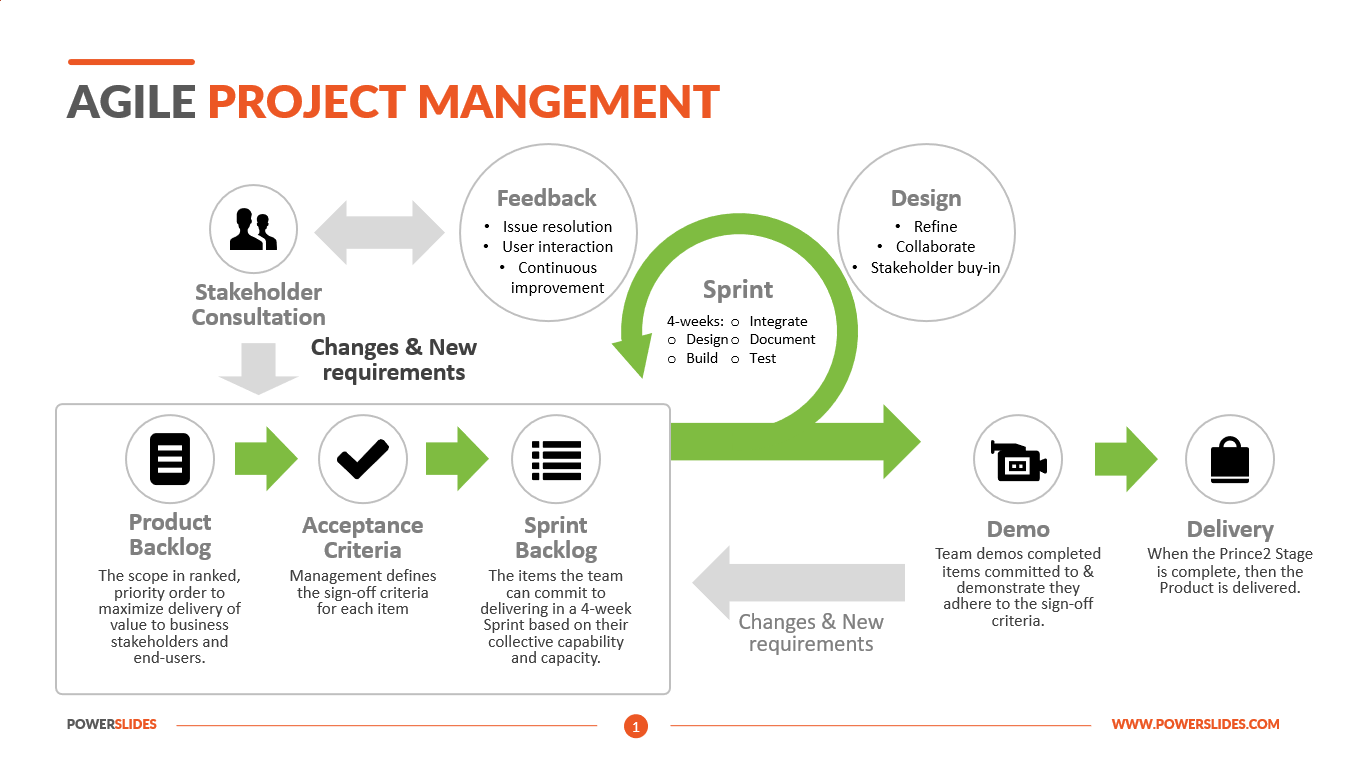
Agile Mastery: Navigating Projects with Flexibility
Agile project management has become a cornerstone of modern project execution, offering a dynamic and flexible approach. This article delves into the principles of agile project management, its benefits, and how organizations can master this methodology for enhanced project success.
Understanding Agile Project Management
Agile project management is a methodology that prioritizes flexibility, collaboration, and customer satisfaction. Unlike traditional project management approaches, which follow a linear and rigid structure, agile embraces change and iterative development. The focus is on delivering small, incremental improvements regularly, allowing for quick adaptation to evolving requirements.
Key Principles of Agile
Agile project management is guided by several key principles. Collaboration and communication are prioritized, with cross-functional teams working closely together. Iterative cycles, known as sprints, are employed, ensuring regular delivery of functional components. Continuous feedback loops from stakeholders drive ongoing refinements, enhancing the project’s alignment with end-user needs.
Benefits of Agile Project Management
The adoption of agile project management brings forth a multitude of benefits. Enhanced adaptability allows teams to respond swiftly to changes in requirements, reducing the risk of project derailment. Regular feedback from stakeholders ensures that the delivered product meets user expectations, resulting in higher customer satisfaction. The iterative nature of agile promotes continuous improvement and learning within the project team.
Iterative Development and Continuous Feedback
At the core of agile project management is the concept of iterative development. Projects are broken down into smaller, manageable increments, or sprints, each typically lasting a few weeks. This iterative approach allows teams to regularly reassess priorities, adjust strategies, and incorporate feedback. Continuous feedback from stakeholders ensures that the project stays aligned with changing expectations and requirements.
Adapting to Change with Agile
One of the defining features of agile project management is its ability to embrace change. Traditional project management often struggles to accommodate alterations in project scope or requirements. Agile, however, welcomes change as a natural part of the development process. This flexibility allows teams to pivot quickly in response to emerging insights or shifting priorities.
Cross-Functional Collaboration in Agile Teams
Agile project management emphasizes cross-functional collaboration within teams. Rather than segregating tasks based on specific roles, agile teams comprise individuals with diverse skill sets. This collaborative approach ensures a holistic understanding of the project’s objectives and promotes collective problem-solving. The synergy within cross-functional teams enhances creativity and innovation.
Scrum Framework in Agile
The Scrum framework is a popular implementation of agile project management. Scrum divides the project into fixed-length iterations, or sprints, typically lasting two to four weeks. A designated Scrum Master facilitates the process, and a Product Owner represents the customer’s interests. Daily stand-up meetings keep the team informed and focused, fostering transparency and accountability.
Continuous Improvement with Agile Retrospectives
Agile encourages a culture of continuous improvement through retrospectives. At the end of each sprint, the team reflects on what went well, what could be improved, and actions for refinement. This iterative feedback loop ensures that the team is consistently learning from experiences and optimizing their processes for future sprints.
Agile Tools for Project Management
Various tools support agile project management, enhancing collaboration, and facilitating workflow. Agile project management software, task boards, and virtual collaboration platforms enable teams to manage tasks, communicate effectively, and track progress in real-time. Leveraging these tools enhances the efficiency and transparency of agile project execution.
Embracing agile project management for Project Success
In the ever-evolving landscape of project management, agile stands out as a methodology that champions flexibility, collaboration, and customer-centricity. This platform offers insights, resources, and solutions to guide organizations in mastering agile project management, ensuring they navigate projects with adaptability and achieve greater success in a rapidly changing business environment.
